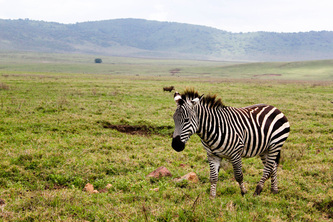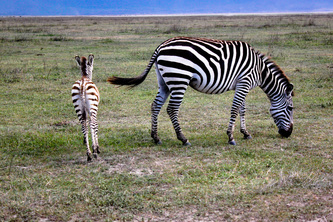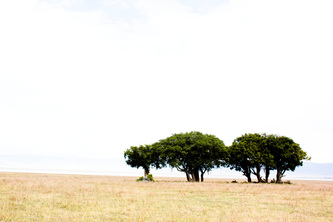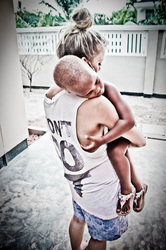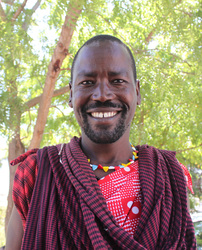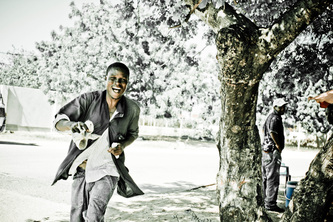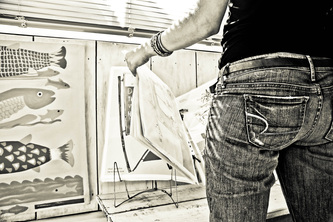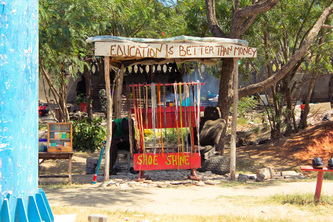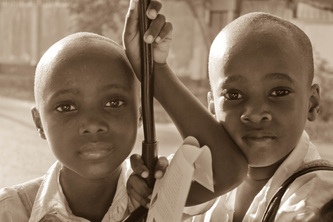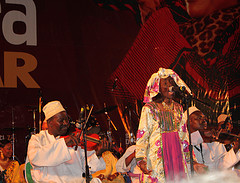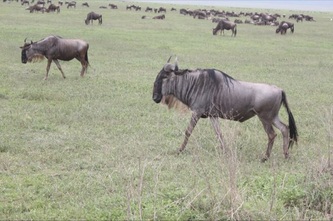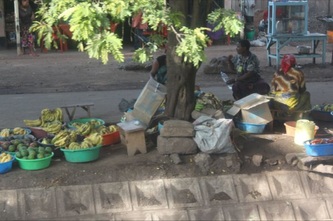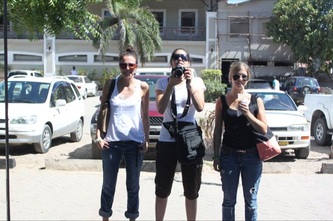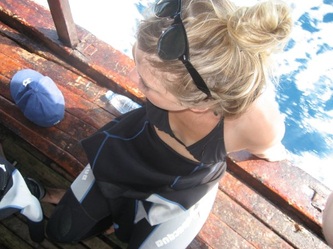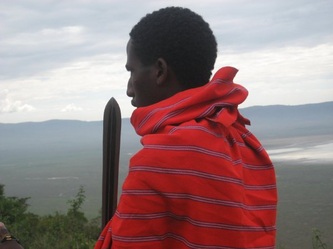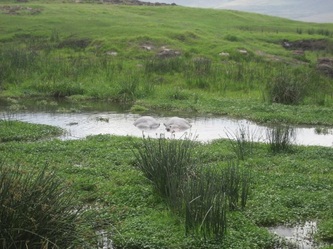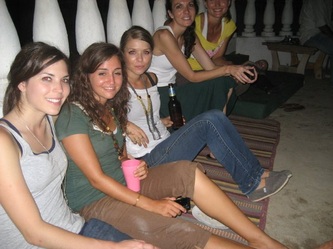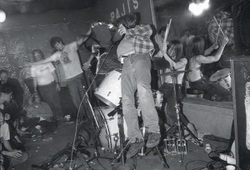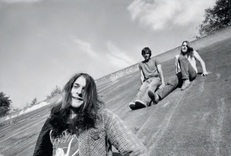Stone-pressed trousers ballooned under an accidental quarter length sleeve dress shirt.
The same cool white washed through the top and pants alike.
The very best of "mtumba" (resold donated clothing), my heart shone towards you now. What could break a heart better than matched and cardboard stiff menswear? I knew you chose something special and prepared and ironed it the evening before.
And I’m sure you ironed it yourself and I’m sure you must have grinned when you picked that out and my heart cries when I think of that.
Later I learned that to get to the meetings you cross a river which floods in the rainy season and hides slimy crocodiles along the banks. This is one of those crazy yearbook experiences which seem ambiguous and faraway. I suppose you are both of those things.
Someone drew a caricature of you on an old receipt during a meeting one time.
You were a frog, hunched forward over a wide, toothless mouth.
Never has a frog looked so smashing as you did just then.
So there you sat and soon you stood, and when you dedicated yourself before all in the audience, I tried not to cry as it would look so strange. But inside I was touched.
You see, when you talk, it’s so charming and bright. Like marbles, your mouth moves around your toothless gaps and utters speech half English and half Swahili. When I offer my ‘Shikamoo’ and say only a few words in your mother tongue, you laugh and still, you try to test me further. But the tests are never too hard, and your graceless chuckles are always surprised and impressed.
And there’s something about your laugh that is especially infectious. Your head leans sideways when you shake my hand; then when you laugh, off-center with the rest of your body, you try to lick your laughter back in before it escapes mid-breath.
So as I sat watching you stand at the front of the auditorium, looking at least 80, and collecting your little black plastic bag with shorts for baptism, I was just melting for your story inside.
The best dressed little frog, ready for the most important moment in his life, and standing alone; no family there to watch, no family that I even know of; there you were.
Later, when I offered my “hongera” and “karibu”, you pointed to Gurvinder, your 30 year old Indian Bible teacher, and said, “My Spiritual Father”.
Of course, your shoulders hunched forward and your wrinkled dimples curled into such a laugh, hot on the heels of your words.
When someone is so human it breaks my heart in such a state.
Hongera Ndugu Nduka, Karibu Sana!
How to challenge the norms of education for the benefit of students and teachers!
Misba: “Bereavement, sorrow, disaster, calamity, catastrophe.”
It is also the word used for the grieving ceremony which follows a death in East Africa.
A mzungu bride sat at the center of a ring of African mamas and scarved ladies-in-waiting. She sat in the central lawn-chair, facing the gate. A blue and white button down hung off her white shoulders; it looked like a nurse’s top. Her skirt was Nigerian kanga; orange and blue West African print. She wore no makeup and thick-rimmed Woody Allen frames.
Her face betrayed affliction; she was crippled by the news. He had been killed upon impact.
Only days earlier we had ridden the city bus together. As she mused about her new husband she reminded me of Pop Rocks candy. Her enthusiasm was electric. It was contagious; maybe I would marry an African, too.
“Can I feed him stir fried vegetables on top of pilau?” “How many nights in a row will an African man eat ugali?”
Our African friends would advise.
Her and Joseph had been waiting for marriage to move into their small apartment in Msasani. Catherine, without waving the self-righteous virgin flag, made it clear that there would be no funny business before the vows. It had been two weeks since the wedding ceremony in his Maasai hometown. She, her moral integrity spiked with a sour and bubbly wit, glittered at the devilish implications of sharing a bedroom with a warrior.
Maybe I would marry an African, too.
Now here she was, the self-made African success, wilted and white, with red eyes sunken behind hipster frames.
I pictured her heart, usually pink and yellow, stuffed with nubian flowers announcing her allegiance to Africa. Now wounded and spilling. Squeezed and bloated; filling with disbelief and pain and leaking out all of their plans.
I sat down beside an African woman in a yellow kitenge. We sat in silence staring at each other and fulfilling the ceremonial rites of mourning.
The expats brought a girl called Sarah. She was a psychologist, and the day before, she had come to our school training day to offer a seminar on grief counseling and child therapy in light of a colleague’s passing. Catherine had sat in and asked questions with the rest of us as she walked us through the stages of grief and the process of understanding profound loss.
The coincidences in life can sometimes be so mean.
Sarah crouched over Catherine. The parts I caught were sad and naked. She talked about how nice her husband was.
She told the story of how he left the night before:
“He came out in his underwear, and I said, ‘Wowww unapendeza!!!’ [you look good],” her voice lifted a bit; she was a performer and the humour of this last story would be told as all of her stories were, “… and he said ‘I don’t even have my pants on yet.’ And I said, ‘I know, and I can already tell how good you’re going to look’.”
It took her several minutes to get the whole story out. She laughed.
We all smiled as tears rolled down our faces.
Not long after, an old mama came strolling in; she had a headdress wrapped around her weaved braids. Her face was wrinkled into heavy folds around her eyes. Her presence demanded respect.
She went to Catherine and kneeled in front of her. We were all silent with our eyes fixed on the center drama about to unfold.
Catherine doubled over and began to sob as her head rested on the lap of the old bibi [grandmother]. The bibi’s hand held her head down and stroked her mzungu hair and her cries began to rise. Defeat echoed in her Swahili wails. She had even learned to mourn like an African widow.
She lived the highs and lows of cultural integration in the course of two weeks. A trashy Tanzanian bachelorette, a wedding in the hills of Kilimanjaro, consummation of a year and a half long friendship, and finally, death and a funeral.
An msiba.
24 years old, a pale widow in Nigerian cloth.
And the few of us who sat around her; A makeshift support system, a potpourri of gypsies who happened to share this place in time. Paralyzed, silent, slippery tears dragging mascara down our white faces. She was like us.
But she was better.
Anarchy is a funny word. Its been posited as the post-punk slogan for revolution and pop revolt. We like that word. We like it when we see it written and even when we hear it; because its cool. And its not real.
Well of course, sometimes it is very real. And then we don’t like it at all.
Yesterday I saw it on the face of this city. Not the written word, not the spray-painted graffiti stamp.
People, disorder, fire.
* * *
We sat in the theater. An exciting little outing to escape the dark, hot, powerless house in Micocheni.
We were wazungus, grasping at wazungu tradition as we snuck Pringles and licorice bites into the crusty, cold showroom.
The movie we wanted seemed out of order so we slapped our shillings on the metal ticket booth dugout, and eagerly ripped open plastic bags filled with very high-end, very low-tech 3-D glasses.
After a parade of Tanzanian commericals (not among the best I’ve seen), we slouched in to enjoy the Green Hornet.
It was a tongue-in-cheek, drugster action flick. And there were lots of green 3-D figure effects.
We will fast-forward to the climax of the movie.
A car chase, of course.
The ”Black Beauty” versus the drug lord pedestrians, chasing the car down winding allies, up shattering glass elevators, and through newspaper office cubicles.
The black car jumped from the screen, invading the theater, and flooding it with green streams of light and smoke.
The Green Hornet wrestled with his enemies.
The charade continued. A provocative, violent, bloody showdown. A green showdown. Straddling the line between cheeky mockery and real Hollywood screen dream, the action was exhausting and they really shouldn’t have stuck those pegs through “Bloodovsky’s” eyes… even if he was the villain.
And as our eyes turned green and we sat numbly hooked to the bitter comforts of familiar pop motifs flashing against our goggles, an African drama was unfolding outside.
A real 3-D disaster.
That same damn corner, that same corner from this morning.
I don’t know who it was, I don’t know who either of them were.
But one of them was only trying to cross the street outside of Mwenge, just beyond our Hollywood living room.
And the other, well who knows where he was going. He was going beyond Mwenge, somewhere else, and he wanted to get to somewhere fast.
And the second one hit the first one and the first one died.
And the second one stopped. He stopped his car and I think maybe he got out.
I don’t know him. I don’t know if he was a nice person, a fat person, a funny person, a sad person or a bad person.
But anarchy was stamped on his face, his legs, his spine. His car. His death.
In a place where justice is obscure, complicated and really non-existent, the people make justice of their own. Or so the story goes.
And dammit, there’s always people in Africa. Even at 10:30 at night, crowded on the most dangerous corner in Tanzania. There will always be people.
The people saw, they heard, they acted.
We sat, still dope-eyed and feeling a bit green, in our taxi.
People shouted and argued. The noise wrapped itself around all of our cars, and then around each of our heads, and settled in our ears, buzzing and threatening in the most unusual way.
A spark was lit and it coughed its way up a crude, shadowed torch. A murky figure dropped it to the ground; and tires were sucked into the mouth of the fire; it spit and sighed, slowly but violently swallowed the rubber and indiscriminate heap below.
Our driver, muttering “Jamani”-s (Oh My Godness-s), and halting his lecture on Tanzanian history, got out of the car.
“Lock your doors”, I said.
Beside us a lory truck grumbled and its red, steel tubs were off-putting so close to the pyromaniacal chaos ahead.
He came back and after liaising with some Tanzanian comrades outside, he began to try to turn the car around.
And I began asking questions.
He explained the accident.
I knew the myth of man-made justice had been made real that night.
“The people are angry, they are frustrated because the same thing happened this morning and two students were killed. They have lit the car on fire; that’s what you saw”.
I asked, “Did they kill him?”
“Yes”.
Later I asked how.
“They kicked him”.
And they chased the police away, kicking him on his way out, too.
This is a place where we feel quite safe, it is not Nigeria or Darfur; its’ a place of peace and petty crime. The people are not aggressive- as I so often say.
But when there is no social justice, and corruption and traffic mayhem are among the nation’s greatest concerns, even the most docile of our kind can react violently.
**
It’s nice when you tell a story and somehow the tragedy or the reprisal of it reconciles itself though beauty or paradox in the end. This story is too impersonal for such resolution.
We dragged ourselves home, sunken green eyelids ready to retire but unable to rest.
And in my heart I wished I had not seen the truth of anarchy, though I had found it so interesting before. Because in person, anarchy is not romantic or exciting, as 'el Che' or 'de la Rocha' might have you think.
There is something gross and indulgent about it; it leaves you emptier than you were when you faced the crime for which anarchy demanded justice. It leaves you grieving not only the pedestrian, the driver, but also the integrity of a nation already bruised.
**
This is your new blog post. Click here and start typing, or drag in elements from the top bar.
Today was a day that has to be called inspirational. This place is real, straight up. The people are real, the problems are real and life leaves no room for superficiality. We began with a tour through the primary schools in the field opposite our hotel. It was a boarding school with about ten classes and dorms where students stayed on site. The washrooms were housed in two cement structures to the east of the property. They were dirty, of course. There is little to say about the condition of the places here in Kibaya save for their inadequacies. Speaking of such eventually loses meaning or at least intensity of meaning here. So often we see things which can be called dirty, appalling, broken, deteriorated and worse. If you’ve seen one African toilet, you’ve seen them all. It’s not to generalize or be ignorant, rather to save the repetitive and exhaustive descriptions; when it comes down to it, the toilets are toilets. The buildings are buildings; they are all broken, dirty and old.
That being said, I continue to describe. The classrooms were empty, some with chalkboards, others without. One class had desks, lined from front to back. They were the kind you see in rural education pamphlets; a bench attached to a desktop; to be shared by two or three students each.
Lou explained to us the challenges faced by these students as we sat in the library resource center where her office was. This place was beautiful; classrooms were colourful with chalkboards, a big rug and posters on the wall. Nobody learns there sadly, because the teachers lack motivation to bring their students to this special place. Teachers here are trapped in a dead end and suffocating career.
To understand the problem of rural education, consider how these ones become teachers in the first place. After form four, you must write an exam to continue your secondary schooling education. If you pass, you can carry on and finish your high school before entering university or starting your own business. If you don’t pass, you cannot carry on to finish your secondary school education. What you can do is enter into Teachers College. Being a teacher in Tanzania is not like being a teacher in the West or otherwise. Teachers do not take pride in their work and are not highly regarded in society. Ironic, when the nation is built on the foundations of Mwalimu (Teacher) Nyrere. Regardless, teaching is not an enviable post here. The wages are low- starting at about 200, 000 Tanzanian shillings per month; roughly 150 USD. Interesting, when you think my house cleaner earns 90, 000 Tanzanian shillings for two days of work per week. Further, upon graduation from teachers college, jobs are assigned randomly. Teachers do not apply for positions, rather, one day they get a letter stating where they have been posted, and then they go. Teachers from busy cities like Mwanza, Arusha or Dar es Salaam, may be sent to a village like Kibaya, where they have no family, no friends and no desire to be. Then they are given accommodation (taken out of their already pitiable salary) and they get to work. The classes may have anywhere form 50 to 120 students in them. Students pack four to a desk and sprawl on the dirt floor. There is no electricity, no water and definitely no resources. Pencils and paper are about 100 shillings each; about 7 cents. In a class of one hundred, maybe 8 will have a pencil and paper. The rest sit and listen (hopefully) so that when they have to write entrance exams they can manage a correct answer here and there.
These working conditions lead to a lack of motivation amongst the teachers, and therefore, poor quality education and high quantity corporal beatings.
Louisa told of a teacher who is a village drunk, with 50 years experience in his profession. She was shadowing a class of his when he walked through the rows to hear each student reply to one of his questions. A student in the class is autistic or otherwise challenged.
“Wewe!” the mwalimu shouted as he slammed his stick on the table in front of the boy. The teacher asked a question for which the student (obviously) had no answer. This enraged the teacher who stumbled closer and grabbed the skin on the side of the boys face. He took a clawful of his cheek and began to shake his head screaming, “ Wewe, your stupid! You know nothing!”
This teacher is regarded as one of the best in the region.
**
After the resource center we hiked up the hill about a kilometre to the only secondary school in the region. Along the way we passed the ravine where women were lined up with multicoloured buckets and bags of laundry. The pit was dry and cracked, with little water in a couple hollowed out pools. Lou pointed out the dirty water they were waiting to wash their clothes in. It looked like a mud puddle, flies hovering over the splash of dark brown water.
We carried on, shikamooing the mamas as we walked. Cows crossed our path in rows.
The air was thinner here, especially being used to sea level in Dar. The uphill walk took my breath without sending me into sweaty gulps for oxygen.
When we arrived we browsed the school; much like the last. Dirty, incomplete and crumbling all at once. The head master came and greeted us in his short-sleeved suit jacket. We sat in his office later and the students fired questions for their assessment task at him, one after the other. When they finished at least an hour’s worth of questions, we signed the guestbook and headed back to the courtyard where a few local students waited to be interviewed by our Grade 7s. One wore slick pants, a black suit shirt and long dress shoes, black leather with a white toe. Another was a Masaii boy with tribal markings burned in his cheeks. He wore purple. Fatema, one of our scarved, ultra conservative Muslim students looked back at me, “I’m scared,” she whispered with her body held awkward and gawking as usual.
Sometimes such remarks are difficult to answer effectively.
The last student was a girl about 18, in a peach synthetic pantsuit. The top was a flowing chiffon-like tunic, and the pants were bellbottomed with slits on either side. She wore beat-up black pointed heels. We matched a few of our students with theirs and off they went to tour the school with their new guides.
Us adults held back and later toured Mindy and Michael’s house at the back of the school. They were Peace Corps volunteers who would soon begin their work as the science teachers in this school.
When we finished at this school we descended the mountain for lunch at the local Tanzanian eatery; the menu featured beans and rice or chipsi mayai. We sat around the table, and I smiled at my company.
Michael was a striking looking nerd type; beautiful eyes and baggy khakis. His wife, Mindy, was short and blonde with dry red cheeks. Her eyes were quite pretty, too. Keith was an interesting fellow. He lumbered over the rest of us on lanky legs tucked in new balance runners. He wore stiff khakis, too. His face looked like the lead singer from Nickelback, with something of a goatee and a sharp nose. He spoke slowly with a sarcastic hook on each of his words. His Californian accent made his Swahili easy to understand. He got along famously with the kids, charming Francis from the start. He was Peace Corp, as well.
Louisa was British. She had a beautiful face with soft blond hair that she wore wavy down her back. She was shortish with a body appropriate for her 40 years and an African diet. She was great with the students; showed personal interest but didn’t hesitate to point out when they were being rude.
Finally, there was Flor, the German anthropologist with the mouth of an American trucker. He swore unapologetically, dropping the F-word several times over lunch with Grade 7. He was a firecracker, a lone wolf and a showstopper all in one. His accent made most of what he said funny and drinks made his wit more pronounced.
I started to wonder, Oh my gosh who am I? The overly skinny bearded guy? The moral nerds? The independent blonde with a heavy middle section?
I guess only time will tell what cassava and dala dalas will do to me. But I’m getting more moral and less skinny day by day.
**
Today was World AIDS Day. The festivities were scheduled for “Under the tree”.
After our bellies were full of starchy carbs and sticky nyama we sauntered up the hill to said tree. White plastic chairs were lined up in a half moon surrounding the emcee who spoke Swahili heavily into the mic. We made it just in time to see Masaii women perform a traditional dance. About seven of them faced the audience hopping up and down to a drum beat. Their earrings and bracelets clamoured in tune with the music. Turn by turn one or two would enter the front of the circle and shriek as she hopped relentlessly on two feet.
“Ayaaaaaaaaaaaaaa.. Iye Iye. Ayaaaaa!”
They were shy. It was beautiful.
When they finished their performance the babu returned to the mic and spoke more unintelligible Swahili. Catching sight of us he capitalized on wazungu fever. He called Lousia to the mic and Keith quickly headed for the limelight. Soon we were all ushered in front of the crowd to introduce ourselves and our mission in their village. We were to be the festival headline act, closing out the ceremony with a round of introductions.
The kids stood in their red DIA tees and Keith went through each stating names and places of origin: China, Vietnam, Dar es Salaam, America, France, Kenya and so it went until I was the last woman standing.
“Na wewe?” Babu asked in the mic, shoving it in my face not long after.
“Natoka Canada.” I giggled like a fancy teenager and looked down at the ground.
Man, those Masaii were a tough act to follow.
We started the day bright-eyed and loaded down with plaza bags full of crisps, sandwiches and assorted sweets. The grade 7s were eager to begin the field trip to a place they’d never heard of.
Incidentally, our driver hadn’t either.
We hit the road in a small bus-cum-van with curtains and seven seats. I sat in the jump seat as Mr Eric, the sarcastic Parisian French teacher took shot. Every time I travel the roads of Tanzania I am hit with a very distinct morbidity, fearing the common and the worst. For this, I did not let the students occupy my makeshift wood-back spot; it was the most dangerous seat in case of an accident. In my head I played out how I would die in several likely vehicle accidents and tried my best to keep my body relaxed. Drunk people are usually the least injured party in an accident due to their relaxed muscles; others stiffen up which makes injuries worse. I tried to think as drunk as possible and said a prayer so I’d go on good terms.
So off we went.
Five hours in and no dead bodies. We stopped for Petrol and Eric and I switched seats. This one had a seatbelt, but still, in case of an accident the front seat can just as easily be the most dangerous...
Getting out of the city in Tanzania does wonders for the psyche. Sitting still is a sort of therapy. No deadline, no control over the situation. I put on my headphones to drain out the electric Grade 7 boys and stared at the landscape speeding by. The land was flat and red. Even the Baobabs had been painted red by wind-torn clay. Savanna extended on either side of the paved path. The land was dusty and dry. At times, the shoulder was hedged in by thorny trees and pineapple fields.
I felt my brain open up as we went along. No deadlines, no studies, no service. No responsibilities lurking around the corner. To feel your brain relax is silent euphoria. Dreaming about whatever passes thorough, reflecting on what I’m doing and why.
To dream after stewing for so long really puts things in perspective. And I have never so conscientiously recognized how occupied and one-tracked my brainspace can get.
Not long after the seat swap, we turned right onto the dirt road Louisa had warned me about.
As soon as we made the turn the landscape turned velvety. The sky was softer, and heavy; almost purple. The treetops seemed thick and the earth was a creamier orange.
The further we went North, the more mountain ranges appeared and hills with large boulders piled like broken inuktuks. Clay brick huts and the odd cement and tin shack spotted the roadside at random. This was real Africa. Wazungu didn’t wander along this road often. The first half of the path was dominated by typically Tanzanian communities; kids in rags chasing goats with homemade whips in hand, mamas with green and red Jambo buckets full of water on their heads, men in Montreal Canadians hockey jerseys sleeping in the ditches and flashing thumbs up as we passed. As we wound up one particular mountain we began to enter land more occupied by Masaii tribal communities. Two young men encountered us on the road, both swathed in drapey plaid and leather belts. One of them must have been about 13. He was small and thin and carried a tiny goat under his right arm. He could have been found in the glossy pages of a coffee table book in any high culture American household. I will try to remember that picture as a souvenir of my adventures in rural Tanzania.
My wayfarers shook against my nose without stop as we cantered sloppily along the turbulent path. Stones, deep tracks and rocky soil beneath the tires made for a noisy and jolting four hours. Along the way something went loose under the van and our driver stopped to investigate. A cable had gone loose and we all clamoured out to take advantage of the opportunity to stretch.
An mzee walking towards us snoopily and silently approached. I felt a bit nervous as he had a giant but raw and primitive panga in his hands. The steel blade was bigger than a butcher knife and particularly violent in its appearance. The old man’s ears framed his face eerily; each stretched low enough to form spacers the size of birds eggs in the center. He wore ragged jeans and foam slops.
He left as he came, in silence, without a word.
We got back in the van after the girls returned from a relief expedition in the parched shrubbery out of the public eye. Rhea came back with claw marks left by thorns the length and width of toothpicks. Our trip continued til dusk when we finally peaked a hill which looked down on a small but sprawling village below.
We found the hotel with ease; moja kwa moja mpaka kijiji mwisho; straight until the end of town then left. Lou’s directions served us well. The driver sighed with relief as we pulled in the gated building with aluminum windows and a small step up to the office doors. The place was modest but of a clean appearance. The kids strayed in one hall and Eric and I found rooms in the opposite corridor. My room looked onto an African household to the back. Clothes hung on a line across the yard and chicks and roosters browsed for food on the soil below. Two houses with rolling tin roofs lined the front of the property and a thatch roof toilet sat at the back. I rolled my curtains closed as I listened to the family chat and cook. There were TVs as advertized, silver square boxes hanging above the bed a-la-hospital couture. Of course, there was no cable and only a small light in the bathroom to the right of the room. The lights from the hallway shone in my room so that I could manage to see most of what I needed. I read my Bible by laptop light and checked on the kids.
Once they were off to bed I returned and crawled in the white sheets and gave in to the stained floral and lattice blanket provided. It was cold here, especially at night. I covered my pillow with a tanktop and called it a day.
Today we went to the orphans. We hobbled through Magomeny in search of the long lost orphanage Neema had worked with for a VodaCom promotion. For weeks I had been asking her to bring. We can read them Bible stories and show the Noah video, I had offered. What an excellent way to do service and find a needy audience.
We started the trip lost on a back road in a more ghetto area of Dar. Neema parked the car and rang up Danny, a co-worker who had filmed at the orphanage, no doubt in a painfully audacious effort to advertize the benevolence of the VodaCom cellular King. We waited for Danny until he joined us and got in the car. Danny is a tall, rather handsome Tanzanian guy with a chipped off front tooth. He speaks English crystal clear; no Tanzanian or British accent. He could have been raised in an American state save for his Tanzanian shoes and that chipped front tooth.
He led us onto a few back roads and we stopped in front of a hole in a wall. Literally.
I knew we were in the right spot as children were running in and out barefoot and shaved bald. I started to feel a little awkward.
What would we do? Walk in and gather the children like chicks to a hen? I got the feeling this was something Jesus would have been better at than me. I tried to conquer the situation with that humorous over-confidence which can make any weird situation seem palatable. We entered in through the rickety doorway and greeted several mamas in kangas and colourful headscarves as they lounged on the large mattress on the floor of the entrance.
Neema and I did a round of “Shikamoos” and I felt a bit of relief as Danny greeted the ladies with more charm than I was able. We followed the skinny path through to the open space at the back of the shack. At the rear, it opened up to a crowded open-air storage and cooking space. The place was a wreck. There were old pails, bags, boxes and who knows what else piled high up along all of the walls closing in the small space. Children ran around everywhere here, coming in and out of an even more rickety shed space to the right and at the back. To the left, the house sort of sprawled into a big U. The entire space was essentially two long hallways, one of them covered in a tin roof but other than that, open. Here is where the cooking took place. A giant fry cooker sat on top of a coal fire, palm oil boiling and soot and ashes heating up the hot, moist midday air. The kids scrambled around it; a sight for sore eyes. Dad would balk at the whole situation; I could hear him in my head, “We’ll have to hire a helicopter to take you to Sault St. Marie and you’ll be ‘oh-so-surprised’”.
Sadly, there is no Sault St. Marie here.
When they burn, they salve it with honey and we hope that the mama would have the sense and cents to bring the kid to Aga Khan by morning. I doubt these kids would ever step foot inside Aga Khan; and not for lack of necessity.
Many are very sick. Neema points out Fatuma. She wears an imitation denim dress and, like the other girls, her head is shaved bald. When Neema worked with this orphanage a few years ago, Fatuma had been dropped off by an abandoning mother and left to the care of whomever should find her. She was diagnosed with AIDS not long after. They said she would die very soon. Neema was happy to see her seemingly well after a couple years of infection.
It was evident by the yellow eyes and scabbed skin of her peers that she was not the only sick one. Danny said half of them are probably ‘affected’. That’s what Africans say to avoid using the word AIDS. A little boy looked up at us as all the kids began to gather around the strangers. His face was pulled sideways below his nose; a problem that will never be solved due to his lot in life. I started to get uncomfortable with the scene. I felt we were just looking around like we were touring the Zoo or on a walking safari. I plopped down with the kids who had sat around us as we made small talk with the Babu. My butt started to burn as soon as I sat; we were gathered on the dusty cement in the back. The sun had been beating down all morning until now. It stung through my flimsy black cotton, and I stared at the kids with a hesitant smile. Neema stayed standing. I looked up at her; “Can we do something with them?”. We had big service bags and were dressed formally; I didn’t want to give the impression that we were conducting an investigation or that we were just snooping aristocrats.
It took some minutes before we decided to go into the second part of the house; the one that is half covered just beyond the make-shift kitchen. We sat on a stool there and immediately Danny wanted the camera, as Neema had told him I wanted to take pictures. I was horrified. Please don’t take pictures yet, I thought. He snapped a few as all the kids gathered at our feet and I started nervously searching for the flavoured fruit toffees I had bought at the gas station as a peace offering.
I was looking for anything to give them, some reason for our visit beyond wild curiosity or the desire to look upon the abominable circumstances of orphans in Africa.
“Put one on your lap”.
Oh God. Please. This is so embarrassing; they will think I’m just looking for a facebook post with Angelina vibes.
Finally he cooled with the photoshoot and the kids broke into song. In unison they sang a welcome song for us, “We are happy, we are happy, for our family. . .”
At one part they put their hands in the air and waved them the way deaf people clap. I threw my hands in the air and peered over at Neema. She didn’t participate. We introduced ourselves one by one. They didn’t laugh at my Swahili, and they clapped when I finished.
After they sang and I threw each child a toffee, I pulled out the Greatest Teacher Book and we announced that we would read them a story. We hadn’t chosen one in advance so as we thumbed the table of contents I pointed out the one entitled, “Do You Remember to Say Thank You?”
We turned to page 97. I started to read and Neema tried to translate. She fumbled with her words so Danny took over. He sat on a bench at the back of the kids and three little girls shared the space inside his arms.
I began- and can you believe the story starts like this:
“Did you eat a meal today?” I prayed that they had, to avoid a real awkward truth.
“Do you know who prepared it? – Perhaps your MOTHER did it. . .”
Aye. Not a good start for hungry orphans. I skipped the line about their mothers.
We continued. The story took a strange turn when it began to describe how lepers’ flesh falls off and how they were thrown out of the city and rejected by common society in Bible times. As I tried to read I held in nervous laughter and disbelief at how not ideal this story was turning out to be.
“If a leper saw another person coming, he would have to call out to warn that person to stay away from him.”
I held it in, and looked up guiltily as the children listened for the translation.
The story took ages to develop, especially translating line for line. Finally, Danny was unable to bear it anymore;
“Can we skip to the moral, this relates to saying thank-you??” he asked after I read,
“. . .when he was well, he could live with people again.”
I got the point and skipped to the last few paragraphs about the different situations we could say thank you in. I threw candies out like they were apologies and managed three little girls on my lap; including Fatuma, the little one with AIDS. The kids sucked on salty toffee as their noses ran down their faces.
My arms became sticky with as their grubby little hands pawed at me; it didn’t gross me out. I just kept peeling the papers off their candies and hoping to somehow make their day a bit better; as cliché as that sounds.
Soon we were listening as they sang their goodbye song, “We are happy, we are happy to say goodbye. . . .” This time they clapped at intervals.
I eyed up one little girl with a tiny oval face and hands the size of a baby’s. Her round head was covered in a blue headscarf, she was awful little to wear a head covering so I wondered if it was for reasons of faith or health. I gave her another candy.
We said our goodbyes and climbed back in the blue SUV outside the upside down house.
"Kurt Cobain knew the truth: “This is off our first record. Most people don’t own it.” Applause.
It was late autumn in 1993 and Nirvana had just settled down in front of MTV cameras to begin rolling one legendary live take most know simply as Unplugged. The song they were about to claw into was “About a Girl,” a pop number originally tucked away in a cauldron of sludge and growl named Bleach, Nirvana’s first and rawest-by-a-mile studio album from 1989. It wasn’t just a debut record most people didn’t own, it was a record nearly unknown to almost everyone.
Mostly because of the web, but starting with the four chords that kicked off “Smells Like Teen Spirit,” the game has changed entirely since Bleach’s birth. By the time a release is scheduled to rest on a record store shelf, it’s already been out for weeks if not months. Records can’t sneak up on us anymore. Nevermind’s hefty legacy is clear: triggered an altrock revolution, cemented Seattle’s place on the cultural map, changed popular music forever and this list could get long.” – David Bevan
For more, see Fader mag, issue 64.
|

